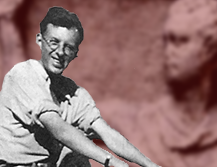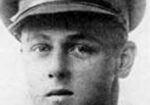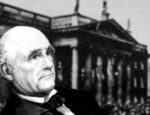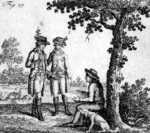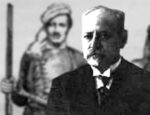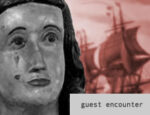Description
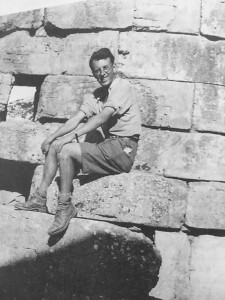 In England, some of the younger members of the Communist Party of Great Britain (CPGB) in the 1930s only later went on to become prominent academic classicists. Frank William Walbank (1909-2008) was born in Bingley, West Yorkshire. He received his classical education at Bradford Grammar School and Peterhouse, Cambridge, and from 1951 to 1977 was Rathbone Professor of Ancient History and Classical Archaeology at the University of Liverpool. His name is inseparable from that of Polybius, on whose Histories he wrote the definitive commentary, published in three volumes in 1957, 1967, and 1979. He became increasingly sympathetic to the cause of the working class in the 1920s, and along with his politically active wife joined the CPGB in in 1934. Yet the implicit Marxist element in his views of history and historiography has never been properly investigated.
In England, some of the younger members of the Communist Party of Great Britain (CPGB) in the 1930s only later went on to become prominent academic classicists. Frank William Walbank (1909-2008) was born in Bingley, West Yorkshire. He received his classical education at Bradford Grammar School and Peterhouse, Cambridge, and from 1951 to 1977 was Rathbone Professor of Ancient History and Classical Archaeology at the University of Liverpool. His name is inseparable from that of Polybius, on whose Histories he wrote the definitive commentary, published in three volumes in 1957, 1967, and 1979. He became increasingly sympathetic to the cause of the working class in the 1920s, and along with his politically active wife joined the CPGB in in 1934. Yet the implicit Marxist element in his views of history and historiography has never been properly investigated.
Walbank interpreted the historian Polybius through the lens of his own experience as a member of the CPGB in 1930s England. Key to this interpretation is Walbank’s memoir, Hypomnemata, privately printed for his family, and his opening comment in the first volume of the Historical Commentary on Polybius.
‘The last full commentary on Polybius, that of Iohhannes Schweighaeuser, was published during the French revolution; but his eight massive volumes, which also contain a text and translation, are fundamentally untouched by the stirring events at the time- except that in the last two the author, hitherto described as Argentoratensis, has suddenly grown conscious that he is also civis Gallo-Francus.’
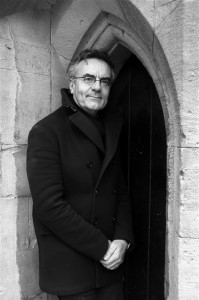
In other words, a person can painlessly experience a change of citizenship by diverting his attention to the writing of history. The Hypomnemata very movingly narrates how Walbank made a political misjudgement, which led to his exclusion from military activity during the war. Polybius too made a political misjudgement which led to his deportation to Rome for 17 years. I believe that Walbank’s linking of the writing of history as at best a consolation for and at worst as a repression of pain has led us to ignore the trauma of Polybius’ experience and how that might impact on our reading of the Histories.
In order to understand Walbank’s pain, we need to rid ourselves of the dilettante communism associated with the Cambridge spies and those artists whom Valentine Cunningham describes as ‘slinking away’ after the Spanish Civil War. Walbank came on his father’s side from a family of school teachers and shoe-shop owners. His mother’s family was described as a ‘social grade below that.’ He funded his education through scholarships and regarded himself as distinctly lower-middle class. His memoir frequently differentiates himself from public school boys with whom he did not mix at all. He describes the Walbanks as radical liberals.
His first political engagement was during the general strike when still at school. Thereafter, there were three key triggers to his communist engagement. He took holidays in Germany in 1931, 1933 and 1935 during which he witnessed the rise of the Nazis. The 1933 holiday confirmed him on his move to the Left when a student on a train boasted to him of the concentration camps. The national government of 1931 and the Spanish Civil War were also key in Walbank’s political engagement. The seriousness of this can be seen in a paragraph from his account of his travels to the Trustees of the Walter Leaf Travelling Studentship which had funded him in the Summer of 1932. Rather than simply recounting his journey, he included this political statement.
‘Many serious sociological questions are raised by the Italian or Greek who emigrates to America, reduces the standard of living while he is there, and returns home superficially westernised, aggressive and full of Yankee patriotism; he is one of the great obstacles to the working class movement in America, thinking in terms of the family, rather than the economic class, and his influence on his own country, when he returns there, as he almost inevitably does, is a factor in the history of the Mediterranean lands, which has not been thoroughly evaluated.’
Walbank himself recounts that it was Mary, who became his wife in 1935, who transformed him from thinker to activist. She joined the CPGB in 1934 and by 1937 was an active member of the Liverpool Branch and chair of the Liverpool Spanish medical aid committee. Frank joined the CP too and became chair of the Liverpool Left Book Club. Indeed, it was Mary’s position, which led to Frank’s misjudgement.
Walbank introduces “the Bauer affair” in this way. “The year 1938-1939 was to turn out to be a public nightmare coinciding with a private nightmare and, briefly, one of the worst years in my whole life.” Hans Bauer arrived at the Walbank’s door, a refugee from the Spanish Civil War, seeking help. Fearing that he would be deported back to almost certain death in Germany if he were reported to the authorities, the Walbanks put him up and with some friends funded him. This was done despite Mary’s difficult pregnancy, their lack of space and Bauer’s deeply unattractive personality.
When war broke out, they decided that Bauer’s presence had to be disclosed to the police. This led to conviction for harbouring an illegal alien, a charge to which Walbank was advised by Liverpool University to plead guilty. Despite the consequences discussed below, Walbank wrote in his statement: “Any help which I have given to Bauer was given out of purely humanitarian motives, because I believed that the saving of a man’s life should come before technical considerations.”
Because of this conviction, Walbank was asked to leave the Home Guard, declined for work at Bletchley Park and served as a fire watcher in Liverpool. This contrasts with the treatment of, for example, Eric Hobsbawm, who despite being monitored by the security services because of his Communist Party membership, served in the armed forces throughout the war.
Walbank’s first publications are both biographies: of Aratus of Sicyon in 1933 and of Philip of Macedon in 1940. In these, the individual is seen as having some influence in the outcome of history. Aratus gained significance ‘not by forcing events into the shape he planned (he was no Alexander), but by identifying himself almost completely with the most important political movement of the time…and for thirty years Aratos maintained his place at the helm, steering to suit the current, and controlling the wheel with a skill such that few realised that it was ultimately the current and not the pilot that determined the ship’s direction.’
In 1943, in his first major piece after the Bauer affair, The Cause of Greek Decline, Walbank castigates Rostovtzeff for failing to prioritise economic activity over other historical causes. Having encountered historical inevitability himself, Walbank sees no hope for a steersman. The current will carry you where it will and one must seek pleasure or solace through the writing of history or through celebrating the successes which the current hands you: being a fire watcher in Liverpool and the first of his cadre to be elected, in 1954, to the British Academy, in advance perhaps of those who had lost six years of scholarship in active service.
And so what of Polybius? How might we see a man, banished for the error of not backing the Romans in the second Macedonian War, a politician deprived of all political rights and forced to spend time with some of the greatest thugs mankind has known? How might a man, who self-identifies as Odysseus, feel when 700 of his crew of 1000 die in captivity?
Walbank sees him as he sees himself and as he sees Iohhannes Schweighaeuser. What is mere citizenship to a man whom the tide of history has washed up on the terrain of History?
n.b. around 1940
encounter written by Robert Lister

